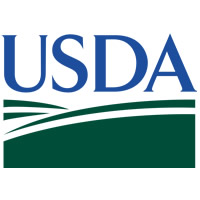

The BRCGS Certification Body of the Year award recognizes innovation and excellence in standards development, training and third-party certification for companies in the food and consumer products sectors.

The BRCGS Certification Body of the Year award recognizes innovation and excellence in standards development, training and third-party certification for companies in the food and consumer products sectors.

Developing and implementing an integrated management system that encompasses food safety and quality standards requires good communication, appropriate team members, regular audits and assessments, and buy in from leadership. Here’s how to get started.

Step into the lawyer’s kitchen with food attorney Jennifer Allen, Partner at Zwillinger Wulkan, as she breaks down FDA labeling requirements for foods that contain natural flavors.

Environmental Monitoring Programs have become an increasingly vital part of a Food Safety Plan. Unfortunately, they are often poorly designed and incorrectly scoped. Understanding the true purpose of these programs is key to success.

Members of the FDA will discuss the recent draft guidance on lead action levels for foods intended for children less than two years of age, and address questions and comments submitted by industry.

In response to the findings of an external evaluation of the FDA Human Foods program conducted by the Reagan-Udall Foundation, FDA Commissioner of Food and Drugs Robert M. Califf, M.D., has announced a proposal for a unified Human Foods Program that would combine the Center for Food Safety and Applied Nutrition (CFSAN), Office of Food Policy and Response (OFPR) and certain functions of the Office of Regulatory Affairs (ORA) under one leader.

Yiannas is stepping down from his position as FDA Deputy Commissioner for the Office of Food Policy and Response effective February 24.

Dr. Mastovska has extensive experience in research chemistry, which includes working for the University of Chemistry & Technology in Prague, the U.S. Department of Agriculture, and founding her own independent consulting business, Excellcon International.

The strategic plan lays out three core goals with strategies for implementation and expected outcomes.

The final guidance includes recommendations on the requirements to analyze the hazards in food; evaluate a potential foreign supplier’s performance and the risk posed by the food; and determine and conduct appropriate foreign supplier verification activities.